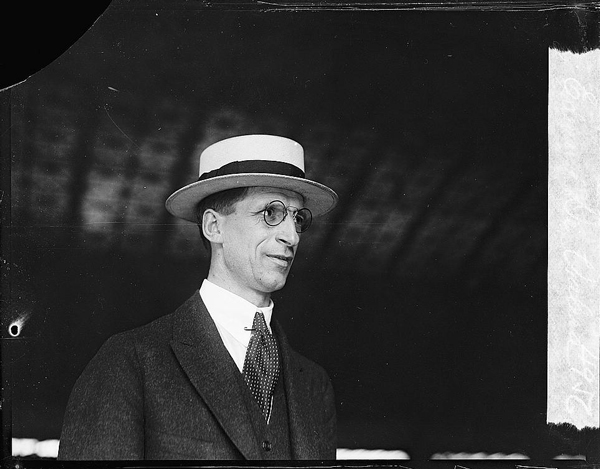Choice facing Irish voters is not between Free State and Republic, de Valera says
Republicans might contest for seats but oath of allegiance is a non-runner
Dublin, 18 June 1923 - The choice facing voters in the next general election will not be between the Free State and a Republic, Mr Eamon de Valera told reporters on the 16th. He stated that this was a choice that could only be made once England removed the threat of war which had been held over Irish people and let them decide freely on their future across the whole of the island.
‘The Free State, like the so-called state of Northern Ireland’, is founded on bad faith, on force, and on English threats. We shall never help to give either the semblance of any better foundation.’
Pressed on his own and his fellow Republicans intentions with regards to the forthcoming election - no date for which has been fixed - Mr. de Valera said that while he thought there was little chance of Republicans receiving fair play, there was a prospect that Sinn Féin or Cumann na Poblachta might decide to put forward one candidate in each constituency.
However, if elected, all such candidates would refuse to take an oath of allegiance to a foreign King.‘That oath’, Mr de Valera predicted, ‘will go as surely as Ireland is Ireland and is not England, and the sweeping of it aside will be the first evidence that the people are again realising what the national dignity demands and are about to apply once more Sinn Féin principles. Once the old spirit of Sinn Féin is restored to our people, that spirit of self-respect and self-reliance which animated them for the four years when Ireland’s name was an inspiration throughout the world, they will never consent to recognise themselves for less than what they are - a free people and a Sovereign State. .... ’
According to Mr. de Valera the ‘nation’s morale was broken on December 6th, 1921’ and it would be the aim of Sinn Féin to restore it. Ireland’s independence could not be given away and Irish republicans had not been party to any ‘so-called Treaty or contract.’ If Mr. de Valera’s views on the treaty will come as no surprise, so will the prospect of republicans contesting each of the constituencies.
A meeting of the Longford Farmers’ Association has been told of plans for the Farmers’ Party to run candidates in all constituencies that might be considered agricultural.
Mr. M.J. Lyons, county organising secretary for the Longford Farmers’ Association, told the meeting that strength of the farmers’ movement was such as to lead opponents to question their ability to govern in the national rather than the sectional interest. Mr. Lyons insisted, however, that the Farmers’ Party was a national party because it represented the national industry.
In another related development, the Irish Independent is reporting that several members of the once powerful and now defunct Irish Parliamentary Party are considering making a pitch at representation in the Free State parliament, Dáil Éireann. Names mentioned include Richard Hazleton in Louth-Meath, Capt. Redmond in Waterford and Patrick White in Meath. Meanwhile, with an eye clearly on the election, President Cosgrave has addressed a large demonstration in Limerick City where he has outlined the achievements of the Free State government over the course of the last year.
[Editor's note: This is an article from Century Ireland, a fortnightly online newspaper, written from the perspective of a journalist 100 years ago, based on news reports of the time.]





















